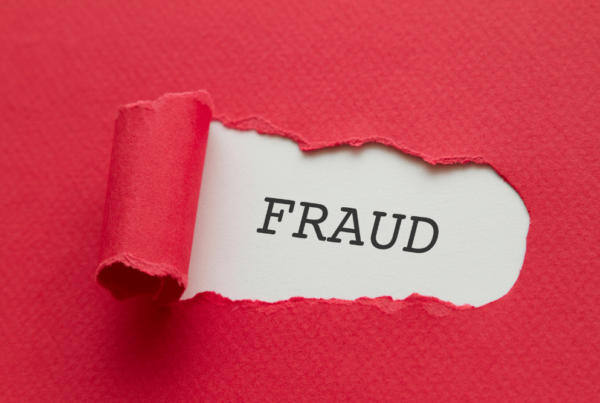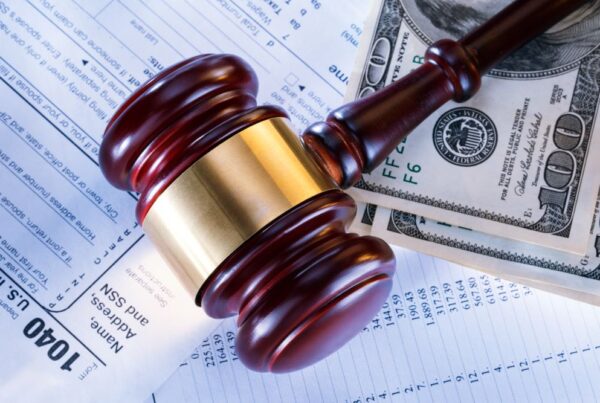WHITE COLLAR CRIMES
Federal Bankruptcy Fraud Defense Lawyer
Bankruptcy Fraud Crimes in the Federal Courts
According to the Administrative Office of the U.S. Courts, there were over 682,000 personal and business bankruptcy filings in the 12-month period ending on June 30, 2020. In spite of the spike in unemployment resulting from the COVID-19 pandemic, this number actually represents a decrease from the previous 12-month period ending on June 30, 2019, continuing a trend of slight, but steadily declining annual filings in recent years. The number of fraudulent filings, in contrast, can only be approximated. The sophistication of criminal bankruptcy fraud schemes continues to evolve rendering many difficult to detect. Nonetheless, the U.S. Trustee Program, which oversees bankruptcy courts, refers hundreds of potential crimes to the U.S. Attorney’s Office every year. With typically no more than a handful of these cases leading to prosecution, some fear that many instances of bankruptcy fraud continue unchecked. In response, legal professionals and justice advocates have increased their call to the U.S. Attorney and the Federal Bureau of Investigation to step up criminal investigations and prosecution of bankruptcy fraud criminal offenders.
What are the different types of bankruptcy fraud schemes?
The types of bankruptcy fraud schemes are as diverse as the potential offenders, which can include not only debtors, but creditors, trustees and criminal defense attorneys as well. The schemes can take many forms and may include: the concealment or undervaluing of assets, providing incomplete or false information during bankruptcy filing (including making false statements), bribery, multiple filings (in multiple states), preferential pre-payment to creditors and credit card fraud.
One of the most common forms of bankruptcy fraud involves the concealment of assets.
A debtor may give or sell jewelry and other valuable personal property to friends or relatives in an attempt to avoid listing such items on Schedule A of their bankruptcy petition. A debtor may also fail to report secondary sources of income. Alternatively, a debtor may simply undervalue the assets that are reported, such as investment portfolios. The value of the debtor’s primary residence can be undervalued through the use of a quick-sale valuation tool, calculating a discounted fair market value.
A common creditor scheme involves creditors filing an inflated claim in a bankruptcy proceeding, knowing that the creditor owes a lesser amount. Debtors and creditors alike may also attempt to influence the proceedings in their favor by bribing the trustee. Trustees have also been charged with embezzling money collected as part of the bankruptcy estate. The list of potential offenders could easily continue along with the variety and complexity of schemes with which they are charged.
Under what statutes are alleged offenders charged?
Bankruptcy fraud is primarily charged under 18 U.S.C. §152, §153 and §157. §152 contains several subsections that criminalize specific fraudulent acts that may occur prior to and during a bankruptcy proceeding. To convict an alleged offender, the government must prove beyond a reasonable doubt that the alleged offender acted knowingly and fraudulently. The subsections and the specific acts they criminalize include:
- 152(1) concealment of any property belonging to the debtor’s estate,
- 152(2) and (3) false statements in relation to a bankruptcy proceeding,
- 152(4) presentation of false claims of proof against a debtor’s estate,
- 152(5) receiving property from a debtor (with the intent to circumvent Bankruptcy Code provisions) after a petition for bankruptcy is filed,
- 152(6) giving, offering, receiving, or attempting to obtain bribes for acting, or failing to act in a bankruptcy proceeding,
- 152(7) concealment or transfer of assets in contemplation of a bankruptcy proceeding,
- 152(8) falsification, concealment or destruction of documents related to the property of the debtor, and
- 152(9) withholding records related to the property or financial affairs of the debtor.
- 152(6) is the only subsection of §152 that may be charged as an attempt; the other subsections of §152 may not.
§153 specifically targets someone acting as trustee or custodian of a bankruptcy estate and criminalizes embezzlement of property belonging to the bankruptcy estate—the wrongful taking of property by the defendant to spend, transfer, or convert it to personal use or to someone else’s use. In contrast, §157 may be applied to a variety of potential offenders and criminalizes voluntarily and intentionally devising, intending to devise, and the mere participation in a scheme to commit bankruptcy fraud. This section is broader in scope than §152 and §153 and criminalizes a variety of actions aimed at executing or concealing, or even attempting to execute or conceal, a bankruptcy fraud scheme or plan.
What are the possible penalties?
Defendants charged with bankruptcy fraud under 18 U.S.C. §152, §153 and §157 face up to 5 years in prison and fines up to $250,000. However, certain factors of the offense may enhance, or increase, a convicted defendant’s sentence. The amount of financial loss, or intended loss, can be the greatest contributing factor. For losses in excess of $550,000,000, the base level of the offense is increased by 30 levels, increasing the potential prison sentence to as many as 405 months (33 years and 9 months).
Under 18 U.S.C. §3663A(a)(1), for fraud crimes in which an identifiable victim suffers a pecuniary loss, the sentencing court is required to order restitution based on the circumstances of the crime for which a defendant is convicted. The methods of calculating the amount of restitution similarly differ based on the nature of the underlying crime, but whatever the means of calculation, the ultimate amount of restitution will not exceed a victim’s actual (not intended) loss.
Are there any related offenses?
18 U.S.C. §1519 is a related offense that criminalizes a broad range of acts and applies to a broad range of potential offenders. §1519 makes it a crime to knowingly destroy, alter or falsify records in any federal investigation and bankruptcy, with the intent to impede, obstruct, or influence an actual or contemplated investigation or proper administration of a bankruptcy case, or any other matter that falls within the jurisdiction of any United States department or agency. Unlike the statutes mentioned above, §1519 carries steeper penalties, including imprisonment of up to 20 years.
White Collar Crimes
Recent Posts






